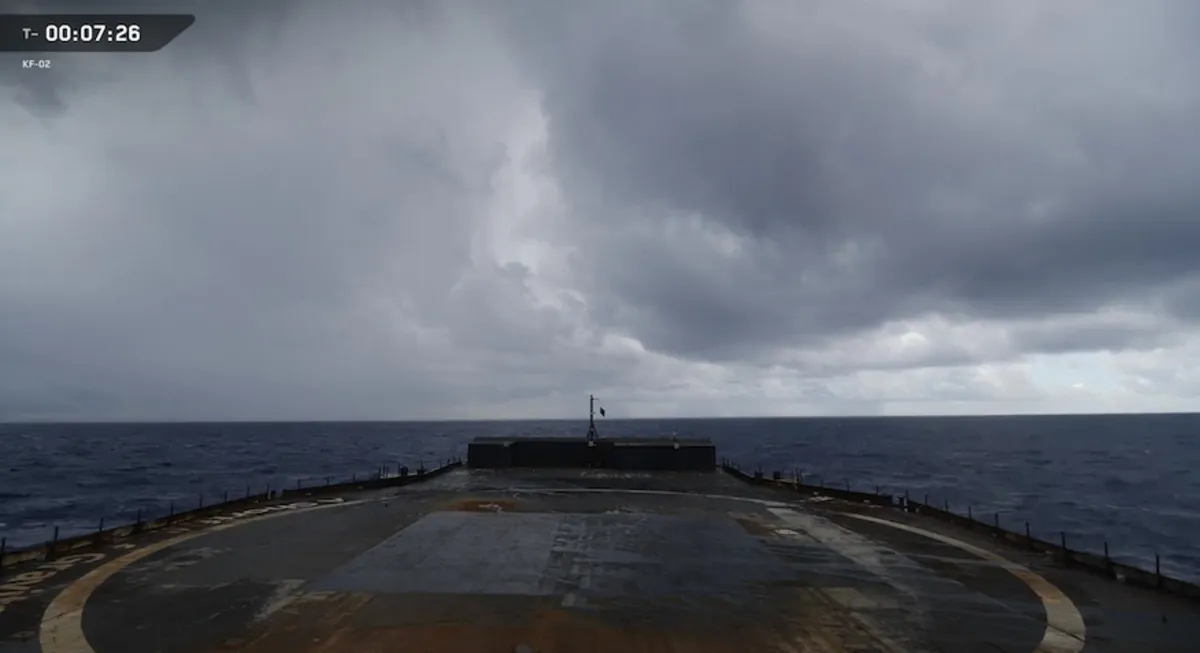
As of August 10, 2023, at 9:30 a.m. EDT, SpaceX's KF-02 launch has been postponed for the fourth consecutive day due to unfavorable weather conditions in the booster recovery zone. The mission aims to deploy 24 satellites for Amazon's Project Kuiper internet service from Cape Canaveral Space Force Station in Florida, with the next launch attempt now slated for Monday, August 11 at 8:35 a.m. EDT (12:35 UTC).
SpaceX has faced a series of hurdles leading up to this launch. Technical difficulties with the Falcon 9 rocket caused cancellations on Thursday and Friday, while poor weather thwarted attempts over the weekend. “We have no-go conditions on recovery weather,” stated the SpaceX launch director approximately 1.5 minutes before the planned liftoff. Just 30 seconds before T-minus, the countdown was halted, confirming the launch would not proceed as scheduled.
The launch window for Monday will remain open for 27 minutes, with Spaceflight Now providing live coverage starting about an hour before liftoff. According to the 45th Weather Squadron, there is a 75 percent chance of acceptable weather conditions, although concerns persist regarding cumulus and anvil cloud violations. Meteorologists have classified the booster recovery weather as a “moderate” risk, indicating potential challenges for the mission.
“A stationary boundary will remain draped across northern Florida Monday, maintaining deep atmospheric moisture across the Space Coast,” explained launch weather officers. They noted that while the atmosphere appears more stable than over the weekend, a small chance of showers or thunderstorms exists during the launch window.
This marks the fifth scheduled attempt for the KF-02 mission. The initial countdown on Thursday was halted before fueling began, prompting SpaceX to delay the launch for an additional day to conduct “vehicle checkouts.” To address a technical problem, the Falcon 9 was positioned horizontally at pad 40. Subsequently, the launch was rescheduled for Friday, but was ultimately called off just hours before the planned launch.
On Saturday, despite a 40 percent chance of favorable weather, heavy rain forced the countdown to stop with only 28 seconds remaining. The mission’s booster, designated B1091, is a modified Falcon Heavy core stage, set to make its inaugural flight as a Falcon 9 booster. SpaceX's Jon Edwards previously stated that B1091 will be utilized several times as a Falcon 9 before being reconfigured for Falcon Heavy missions.
If weather conditions allow, the Falcon 9 is expected to launch on a north-easterly trajectory, targeting a landing on SpaceX’s drone ship, A Shortfall of Gravitas, approximately eight minutes post-launch. Should the mission succeed, it will mark the 120th booster landing on this vessel and the 486th booster landing overall.
Approximately eight and a half minutes into the flight, the Falcon 9's second stage will deploy the Kuiper satellites into an initial parking orbit. This will be followed by a brief three-second burn nearly 53 minutes into the flight to circularize the orbit. The deployment sequence for the satellites is scheduled to commence at T+56 minutes, 18 seconds.
Interestingly, the rescheduled launch coincides with the first day of school for students in Brevard County, the home of Cape Canaveral Space Force Station, with liftoff set to occur shortly after students arrive at their schools.